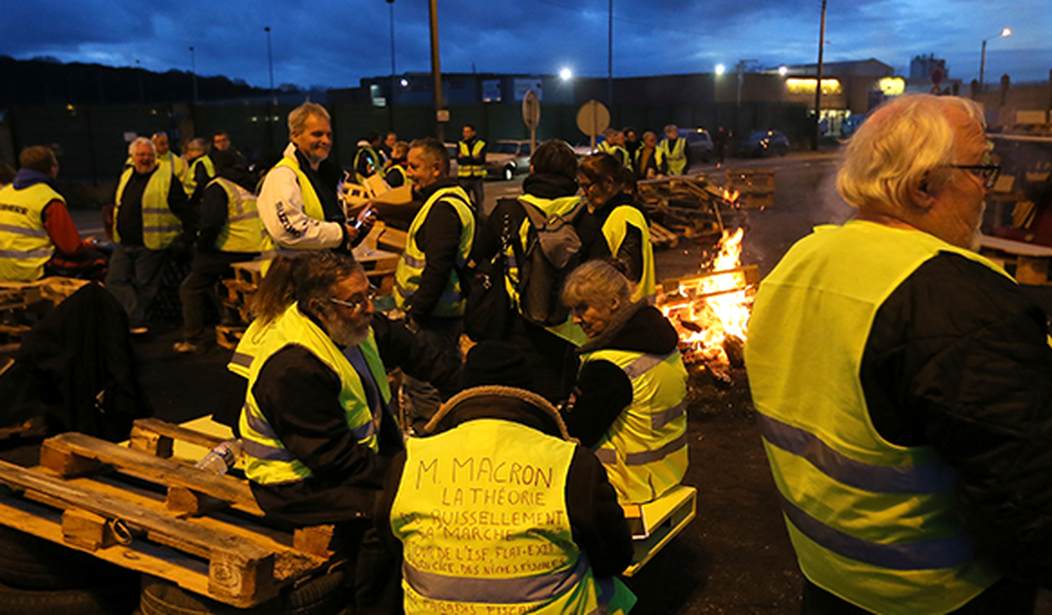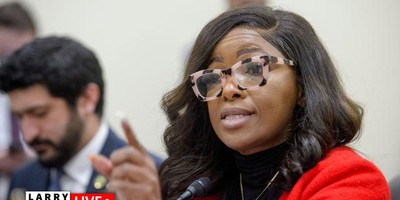As France is gripped by civil disorder, many commentators identify, quite correctly, as the culprit the outsized burden that France's bloated welfare state places on its citizens.
According a recent report from the Organization for Economic Cooperation and Development, the highest tax burden in the industrialized world is in France -- 46.1 percent of GDP.
In the United States, it is 27 percent, which includes taxes paid at all levels of government -- federal, state and local.
Welfare state spending in France is 32 percent of GDP, almost double that of the U.S., meaning that 1 out of every 3 dollars generated by the French economy is captured by the government and redistributed into social/welfare spending.
But let's recall that all this government was put in place in the name of making life better for France's citizens.
There's plenty of analysis regarding the French situation, as there is in our own country, about how to streamline and reform government programs and deliver the same quality of services at a reduced spending and tax burden on citizens.
But these discussions invariably fail to look at the full scope of human reality at play.
The vast expansion of the welfare state, both in Europe and in the United States, occurred in tandem with a weakening of the family. And weakening of the family generally occurs in an environment of weakening of religion.
When I speak and tell audiences that today 4 in 10 babies in the United States are born to unwed mothers, compared with less than 1 in 10 babies 50 years ago, I hear gasps.
Recommended
But in France, out of wedlock births stand at 6 in 10.
Not surprisingly, a recent survey by Pew Research of 34 European countries shows France to be one of the least religious.
Eleven percent in France say religion is very important in the their lives; 22 percent say they attend religious services at least monthly; 11 percent say they pray daily; and 11 percent say they believe in God with absolute certainty.
This is in stark contrast to the United States, where 49 percent say religion is very important to them; 36 percent say they attend religious services at least weekly; 55 percent say they pray daily; and 75 percent say they believe in God.
Only 47 percent of French people say marriage infidelity is morally unacceptable compared with 84 percent of Americans.
So although the hold of Christianity on the American public has weakened over the years, compared with France it remains a quite strong force.
This has important bearing on the welfare state crisis, at home and abroad.
As religion weakens, family structure weakens, and as family structure weakens, government strengthens and grows. Where people once looked to their parents to transmit values, love and care, increasingly they are looking to government.
The problem is that it doesn't work.
Traditional family and marriage reflect eternal values that cannot be replaced by government. These values -- where husband and wife join in holy matrimony, embodying and transmitting truth that is greater than their own personal, egotistical proclivities -- translate to children, learning, work, creativity and productivity.
In 1958, 82 percent of Americans said religion can solve "most or all of today's problems" and 7 percent said religion is "old-fashioned and out of date." By 2015, 57 percent said religion can solve our problems and 30 percent said religious is "out of date."
Over this period of time, American family structure significantly deteriorated and our welfare state, although still nowhere near what's happening in France, has become huge, bloated, and a major fiscal drain on the nation.
We surely should work to streamline and reform the welfare state.
But we shouldn't lose perspective that the core problem is the integrity of the traditional family. This is where our answers lie.
Star Parker is an author and president of CURE, Center for Urban Renewal and Education. Contact her at www.urbancure.org.

























Join the conversation as a VIP Member